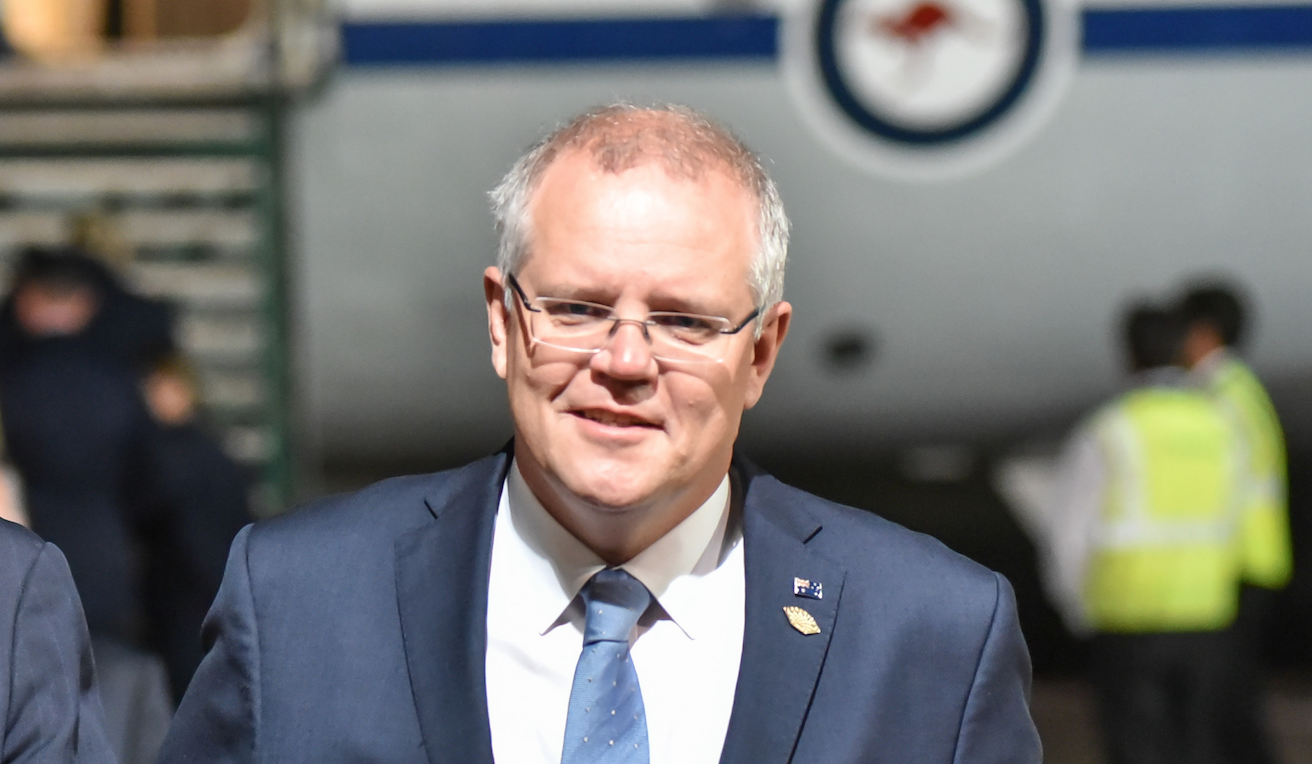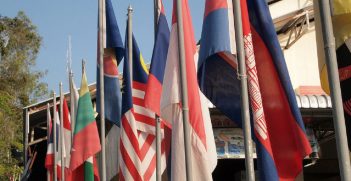Australian Leadership in Regional Institutions: Scott Morrison’s Foreign Policy Speech

The Australian prime minister’s first foreign policy speech last week repositioned Australia as a creative middle power that seeks to develop a regional security architecture. For this he deserves credit, though the test is to realise these ambitions.
Prime Minister Scott Morrison set himself a challenging assignment in his first foreign policy speech as a newly-elected prime minister.
This was an important speech from Morrison’s perspective given that he has little on the record to indicate how he views the world. In that regard, his Asialink-Bloomberg address titled Where We Live was an attempt to set down some markers for a Morrison foreign policy.
Did he succeed in providing a framework for his government’s ability to manage what is arguably one of the more challenging moments in Australian foreign and security policy?
The answer to that question is “yes,” up to a point.
Morrison made a reasonable start in his efforts to define a middle power role for his country in an environment in which Australia needs to create more space for itself to manoeuvre between its security guarantor and its main economic partner.
There is no point any longer in pretending that competitive tensions between the United States and China will leave the region untroubled or, to invent a word, “undisrupted.’’ Or that Australia can avoid some difficult choices in the months and years ahead between its economic and security interests.
Long gone are the days when governments in Canberra could simply say Australia did not have to choose between its history and geography. This is no longer the point. It is not a matter of “not choosing.” It is a question of making the right choices given a shifting foreign and security policy environment.
Australian policy-makers are not dealing with a static environment. They are being obliged to anticipate changes that are outstripping the ability of the political class to keep up. Morrison’s take on this extremely challenging environment suggests he is on the way to establishing a frame of reference that seeks to enhance partnerships with Australia’s neighbors. This makes sense. A reasonable criticism of Australian foreign policy-making in the recent past is that it has paid insufficient attention to nurturing regional partnerships, including those in the Pacific.
Morrison’s “step-up’’ policy in the Pacific is a welcome development given this is Australia’s own sphere of influence, and one that is susceptible to outside interference. While he made the obligatory references to Australia’s “bedrock’’ security relationship with the United States it was clear he regards Australia’s best interests being served by emphasis on a multi-dimensional approach.
Morrison did not use to the word “middle power’’ but this is what he was driving at in remarks that aligned Australia with its important Indo-Pacific neighbors. “All nations in our region, not just Australia, are having to adjust to this period of greater power competition,’’ he said. “Japan, India, New Zealand, Vietnam, Singapore, Indonesia, Papua New Guinea. All of us are similarly seeking to balance our interests, our history, our geography, our alliances, our partnerships and aspirations in the context of this new dynamic.’’
In other words, Morrison was making the case for enhanced regional partnerships not to confront China, but to try to ensure that Australia and its neighbors seek as far as possible to influence their own destiny.
Overlooked by most commentators were these words that summarized a collaborative message. “We should not just sit back and passively await our fate in the wake of a major power contest,’’ he said. “This underestimates and gives up on the power of human, state and multilateral agency.’’
In other words, Australia’s destiny is, to a significant extent, in its own hands. What is required is a clearer vision of what steps might be required to assert the national interest.
His “key principles’’ included:
- A commitment to open markets with trade relationships based on rules, not coercion.
- An approach that builds resilience and sovereignty. In other words, adequate investment in military capabilities.
- Respect for international law and the resolution of disputes peacefully, without the threat or use of coercive power.
- Commitment to cooperation and burden-sharing within a strong and resilient regional architecture.
A test of Morrison’s foreign policy will be whether Australia can assume a leadership role in developing a regional security architecture that would help to address tensions over China’s assertiveness.
Perhaps too little energy — and creativity for that matter — has gone into promoting security arrangements that would contribute over the longer term to regional stability in a testing environment.
ASEAN forums have sought to push forward falteringly on region-wide security arrangements. More effort is required, and China needs to be involved in these processes.
Inevitably, the Morrison speech was viewed through the prism of US-China rivalry, and just as inevitably the speech was judged by the weight he gave respectively to Australia’s relationships with either power. While it is true that he sided with the United States in its disputes with China over intellectual property theft and forced technology transfer among other issues, he also acknowledged China’s rise as “one of the world’s greatest economic miracles.” Morrison likes the word “miracle.”
His pleas for a revamp of the World Trade Organisation to deal with China’s “economic structure and policy practices” represented a gesture to US agitation for a more level playing field as far as trade is concerned. China’s designation as a developing country under WTO rules and thus a recipient of a preferential trading arrangements is a sore point with the Americans. This issue is technical.
What was more important from Morrison’s perspective was to reposition Australia as a creative middle power coupled with a willingness to assert itself in the development of regional institutions and relationships. If he further develops that blueprint he will have something to work on.
He should be given credit for seeking to define a way forward. Whether he and his colleagues, in what is an inexperienced foreign policy team, can realise those ambitions remains to be seen.
Tony Walker FAIIA is a vice chancellor’s fellow at La Trobe University, author and fellow of the Australian Institute of International Affairs. He was the international editor (2010-2016) and Washington correspondent (2004-2010) for the Australian Financial Review.
This article is published under a Creative Commons Licence and may be republished with attribution.





